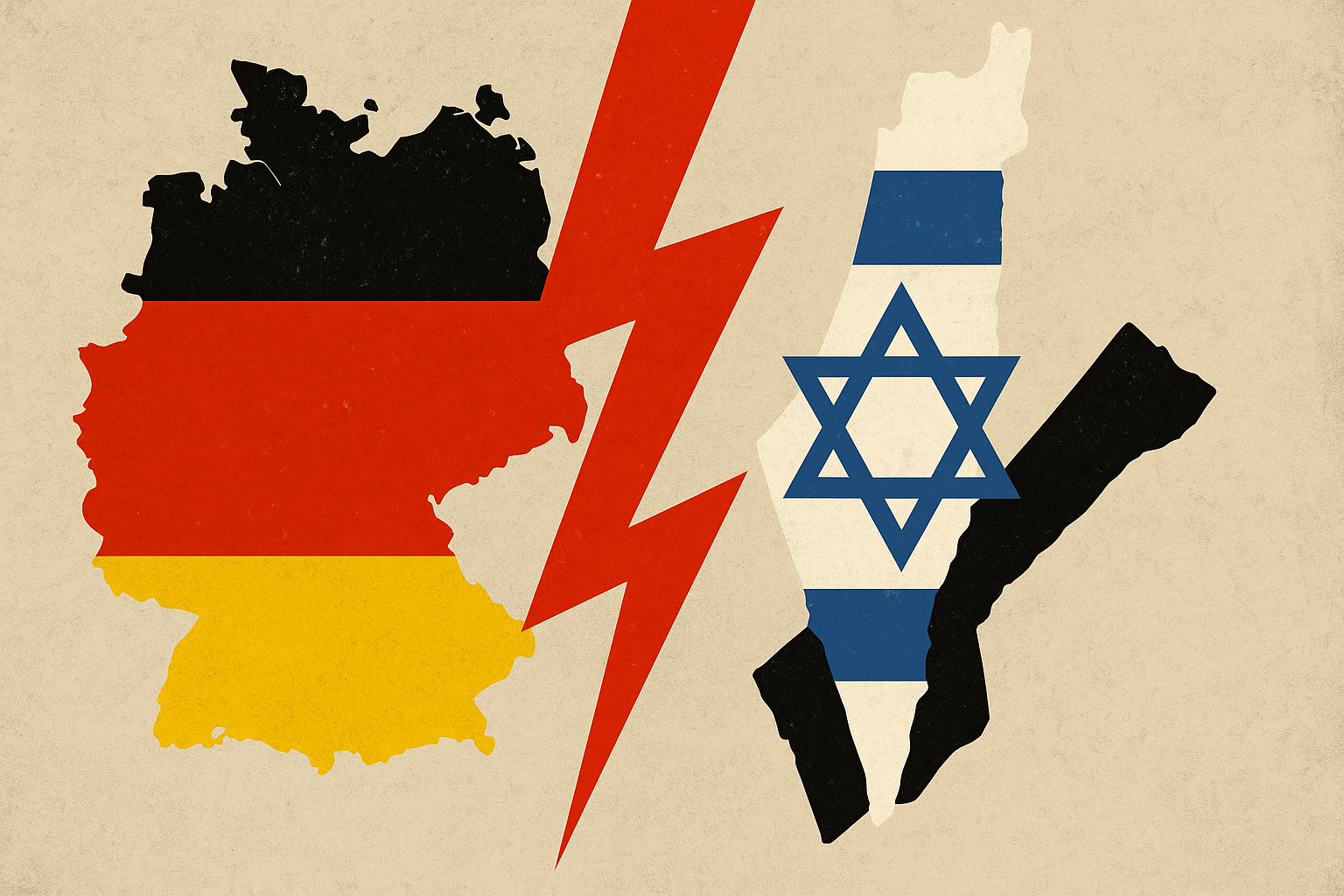Germany has suspended military exports to Israel in response to plans for an expanded Israeli military offensive in Gaza, marking the most significant rupture in bilateral relations since they were established in the 1950s. The decision represents a stark departure from Germany’s long-standing postwar policy of unwavering support for Israel.
Chancellor Friedrich Merz announced on Friday that all arms deliveries that could be used in Gaza operations would be halted until further notice. However, Berlin will continue shipments of weapons intended to counter Iran. The move comes amid mounting concerns about the deepening humanitarian crisis in Gaza and follows internal divisions within the German government.
Merz stated that Israel’s decision to escalate its military campaign made it increasingly difficult to reach a ceasefire with Hamas or secure the release of hostages. “With the planned offensive, the Israeli government bears even greater responsibility than before for providing supplies to the civilian population in Gaza,” he said.
A Historic Shift in German Policy
Germany, one of the world’s top five arms exporters, has sent nearly €500 million in military support to Israel since the Hamas attacks of October 7, 2023, according to official data. Israel reportedly represents around 11% of Germany’s military exports. The decision to freeze certain exports marks the first punitive measure Berlin has taken against Israel’s military actions in Gaza.
Analysts describe the move as a major turning point. “This is the biggest rupture in the relationship between Germany and Israel since their ties began in the 1950s,” said Thorsten Benner, director of the Global Public Policy Institute in Berlin. “For a CDU chancellor to take this step is monumental.”
The decision follows weeks of internal government disputes between Merz’s Christian Democrats (CDU) and the Social Democrats, as well as pressure from opposition parties such as the Greens and Left, who have demanded stronger action amid United Nations warnings of famine in Gaza.
Israeli Reaction and Rising Tensions
Israeli Prime Minister Benjamin Netanyahu responded with disappointment, accusing Germany of undermining Israel’s fight against Hamas. “Instead of supporting Israel’s just war, Germany is rewarding Hamas terrorism by embargoing arms,” said a statement from Netanyahu’s office.
Germany’s decision comes amid broader European discontent with Israel’s actions. European Council President António Costa warned that Israel’s planned takeover of Gaza City “must have consequences” for EU-Israel relations, stating it violates both EU agreements and international law.
Despite Germany’s previous reluctance to support EU sanctions against Israel, Merz has shifted tone in recent months. While he initially praised Israel’s military strikes on Iranian nuclear facilities, describing them as “doing the West’s dirty work,” Merz has since acknowledged that Israeli actions in Gaza can no longer be justified solely as counterterrorism.
Mounting Public and International Pressure
Public opinion in Germany has also turned. Recent surveys show growing German criticism of Israel’s handling of the war in Gaza, with pressure building after France, the UK, and Canada moved toward recognizing a Palestinian state. Although Germany supports a two-state solution, it maintains that recognition of Palestinian statehood should come at the end of a peace process.
The reduction in German military exports may also affect strategic defense cooperation. Israel is a supplier of key military systems to Germany, including the Arrow 3 missile defense system, raising concerns about possible retaliatory measures from Tel Aviv.
This diplomatic rupture signals a broader reassessment of Germany’s Middle East policy, driven by worsening humanitarian conditions in Gaza, international calls for restraint, and growing domestic demand for accountability.








